|
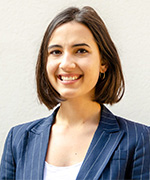
|
Josefa Arán is a Scientific Staff Member with the Geocomputation and Earth Observation group. She did a BSc in Mathematics at the University of Santiago de Compostela, Spain, and a MSc in Statistics at ETH Zurich. The title of her thesis was "Diagnostic Tools for Interference Features in Global Average Treatment Effect Estimation”.
|
|

|
Jesper Björklund is a Scientific Staff Member with the Dendrosciences group. He did a PhD in Dendroclimatology at the University of Gothenburg, Sweden. Since then, he has held several PostDoc and research positions in European tree-ring labs where he was developing the link between tree growth and current and historical climate change. Jesper is particularly interested in the use of wood anatomy and density of conifer tree-rings to improve regional to global reconstructions of temperature, and benchmark iconic climate episodes such as the Medieval Climate Anomaly and climate response to volcanism.
|
|
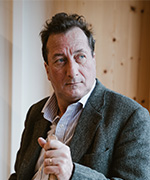
|
Paolo Cherubini is a Scientific Staff Member with the Dendrosciences group. He holds a degree in Forestry from the Università di Firenze, Italy and did a PhD at Universität Basel. He is an Adjunct Professor at the University of British Columbia, Vancouver BC, Canada, and a Lecturer at the University of Zurich. His research interests lie within tree physiology, forest ecology, and evolution, with relevance to the knowledgeand sustainable management of natural resources, and nature conservation.
|
|
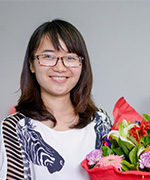
|
Chuxian Li is a new PostDoc with the Lake Sediments and Paleolimnology group. Chuxian has been awarded one of the highly competitive SNF Postdoctoral Fellowships to work on her Project “Does the Southern Ocean act as a net source, or sink, of CO2?”. She will develop a method to use Hg isotopes in Late Quaternary peat bogs to reconstruct precipitation and southern Westerly wind strength for some remote subantarctic islands (Kerguelen, Macquarie, Bird and Falkland Islands). Chuxian studied Environmental Science at the Southwest University, Chongqing, China, and did her PhD in Earth Science at the University of Toulouse, France. Before joining the OCCR, she was a PostDoc at the Swedish University of Agricultural Sciences (SLU) at Umea, Sweden.
|
|
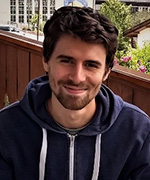
|
Sergio Cirelli is a new PhD with the Lake Sediments and Paleolimnology group. He did a Master in Sciences and Technologies for the Environment and Landscape at the University of Milano Bicocca with a thesis entitled “Chemometric models for the determination of the half-life times of potentially toxic organic molecules subjected to photodegradation in shallow waters”. His research focus is on studying the processes involved in the spread of plant protection products outside agricultural fields and across environmental compartments.
|
|
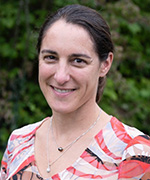
|
Marie-Estelle Demory is a new Senior Scientist with the Climate Scenarios for Sustainable Development group. She has extensive experience in high-resolution global and regional climate modelling. She has been involved in the World Climate Research Program modelling activities, such as HighResMIP, EURO-CORDEX and CORDEX FPS-Convection. Her research focuses on linking global and regional climate information to better understand the drivers of the regional water cycle variability and change, including extreme events associated with hail and flooding. She is a contributing author of the IPCC AR6 Chapter 10: Linking global to regional climate change.
|
|
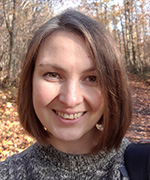
|
Marina Fonti is a Technical Staff Member with the Dendrosciences group. Her research interests are dendroecology, wood anatomy, xylogenesis and stable isotopes.
|
|
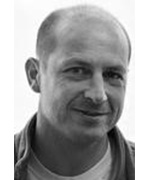
|
Patrick Fonti is a Senior Scientist with the Dendrosciences group. He has a long working experience in disciplines such as xylogenesis, quantitative wood anatomy, dendrochronology, and tree physiology. In particular, he is the responsible of the Lötschental transect, a unique 15-years long tree-growth monitoring elevational transect. His research approach has mainly been based on high-resolution monitoring of tree physiology and xylem formation (e.g., using repeated micro-coring, dendrometers, and sap flow measurements), and the analyses of tree-ring time-series of different anatomical parameters.
|
|
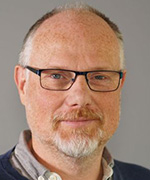
|
Holger Gärtner is a Scientific Staff Member with the Dendrosciences group. He holds a Diploma in Geography from Heidelberg University, Germany and did a PhD in Geography at the University of Bonn, Germany. His research interests are wood anatomy, dendrogeomorphology, dendroecology, technical developments, and microtomes.
|
|
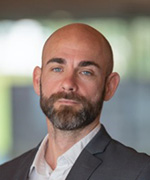
|
Jan Göpel is a new PostDoc with the Climate Scenarios for Sustainable Development group. His research emphasis is on the impacts of climatic variability on land use and the implications of land use change for regional climate. He has extensive experience in scenario co-design and model-based quantification of socioeconomic development trajectories and subsequent socioeconomic impacts, with a special emphasis on ecological impact assessment. Geographically, his past work focused on Latin America and in his current position this focus will be extended to other hub regions of the Wyss Academy for Nature.
|
|
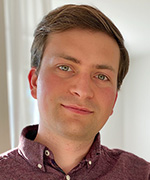
|
Fynn Holm is a new PostDoc with the Environmental History and Historical Climatology group. He is an environmental historian and japanologist. Before coming to Bern, he was an associate researcher at Harvard University financed by a SNSF Early Postdoc Mobility Fellowship. Moreover, he was a visiting researcher at Tōhoku and Sophia University. He is currently working on a transnational environmental history of the Swiss and Japanese Alps, investigating how alpine concepts were transferred between continents and affected the non-European mountain environments. Fynn is fluent in early modern and modern Japanese and is open to support any projects at the Oeschger Centre that may require Japanese language expertise.
|
|
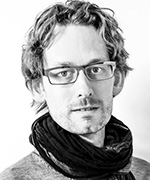
|
Koen Hufkens is a PostDoc with the Geocomputation and Earth Observation group. He did a MSc in Biology and a PhD in Ecology at the University of Antwerp, Belgium. His research interest is in modeling ecosystem processes, such as vegetation growth or drought / disturbance resistance. To do so, he uses various – retrospective – proxy measurements in a model data fusion approach, including among others remote sensing, dendrochronology and recovered historical data records.
|
|

|
Jaideep Joshi is a PostDoc with the Geocomputation and Earth Observation group. He did a PhD on “Spatial and coevolutionary dynamics of cooperation” at the Indian Institute of Science, Bengaluru. His work experience includes a stay as Research Scholar at the International Institute for Applied Systems Analysis, Laxenburg, Austria.
|
|
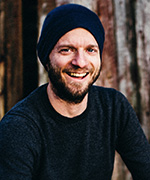
|
Stefan Klesse is a Scientific Staff Member with the Dendrosciences group. He gained a Diploma in Geography from the Johannes Gutenberg-University, Mainz, Germany and did a PhD in Climate Science at the University of Bern. His research interests are tree rings, forest ecology, paleoclimatology, carbon cycle and stable isotopes.
|
|
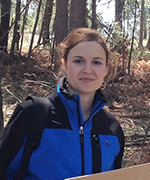
|
Laura Marqués is a PostDoc with the Geocomputation and Earth Observation group. She did a MSc in Agricultural and Environmental Sciences at the University of Zaragoza, Spain and a PhD in Forest Ecology at the University of Alcala, Madrid. After that she worked as a PostDoc at the University of Alcala and ETH Zurich.
|
|
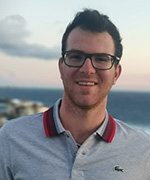
|
Noé Schmidhauser is a new PhD with the Lake Sediments and Paleolimnology group. He did a Bachelor and Master in Geosciences at the University of Basel with primary focus on biogeochemistry and environmental sciences. The focus of his PhD project is on biochemical responses of lakes to rapid climate transitions.
|
|
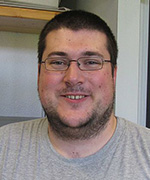
|
Loïc Schneider is a Technical Staff Member with the Dendrosciences group. He holds a MSc in Biotechnology from ZHAW in Wädenswil, Switzerland. His research interests are dendroscience, isotope preparation, wood anatomy, dendrochronology, roxas, skippy, and slidescanner.
|
|
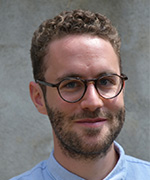
|
Pascal Schneider is a PhD with the Geocomputation and Earth Observation group. He did a Master in Environmental Sciences (with a major in Biogeochemistry and Pollutant Dynamics) at the ETH Zurich. His research focus is on creating process-based models for photosynthesis which are tested against big environmental datasets. The title of his PhD project is "Eco-Evolutionary Optimality Principles for Dynamic Vegetation Modelling".
|
|

|
Inne Vanderkelen is a new PostDoc with the Climate Scenarios for Sustainable Development group. She completed her PhD in Climate Science at the Vrije Universiteit Brussel, during which she studied the role of human water management in the Earth System. To this end, Inne implemented dams and their management in a global climate model, the Community Earth System Model. In addition, she quantified the total heat uptake by inland waters since pre-industrial times. In her current position, Inne is investigating water scarcity from global to local scales, with a particular focus on the hub region Kenya. Furthermore, her research will focus on the interplay between restoration projects, climate change and water availability.
|
|
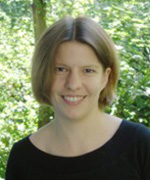
|
Anne Verstege is is a Technical Staff Member with the Dendrosciences group.
|
|
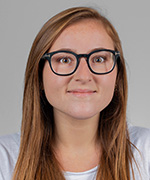
|
Michelle Worek is a new PhD with the Analytical Chemistry Research group. She did a BSc in Geosciences at Virginia Tech, USA, and MSc in Earth Sciences at the ETH Zurich. Her master thesis investigated sources and sinks of Alpine glacier-derived carbon. For her PhD, Michelle will investigate whether the current glaciation state in the European Alps is unprecedented through the Holocene using micro-radiocarbon dating of ice with accelerator mass spectrometry. She will apply this technique to determine the age of the oldest ice from the bottom of three selected Alpine glaciers, combined with other glacio-chemical tracers and glaciological flow modelling, to deduce the timing of past glacier coverage and glacier formation at higher elevations.
|